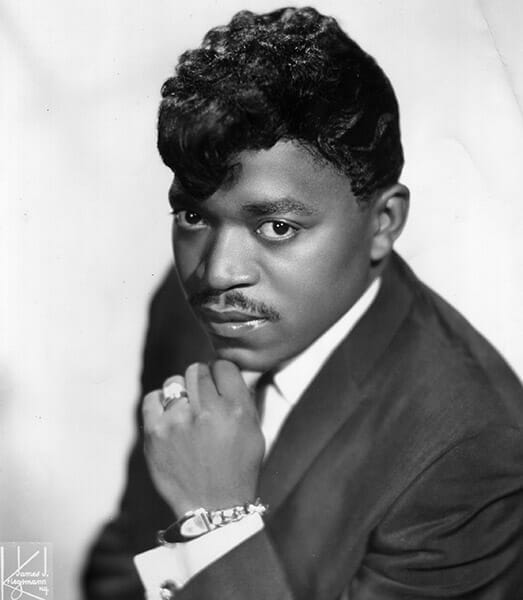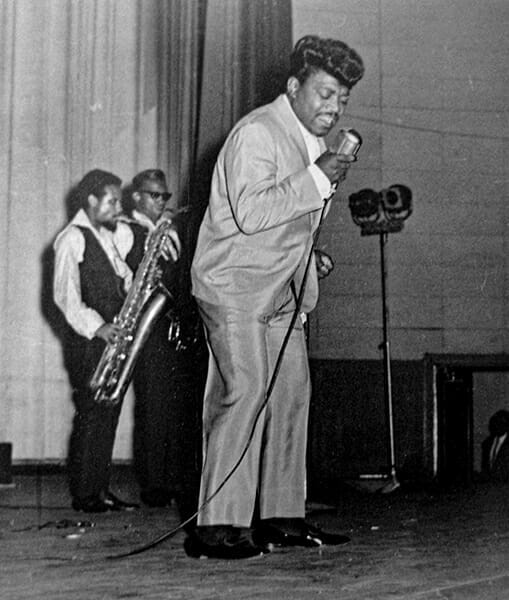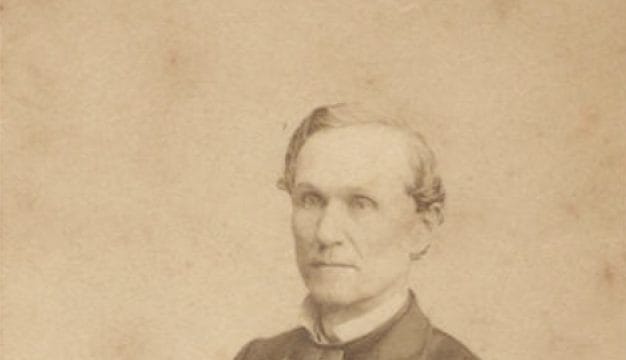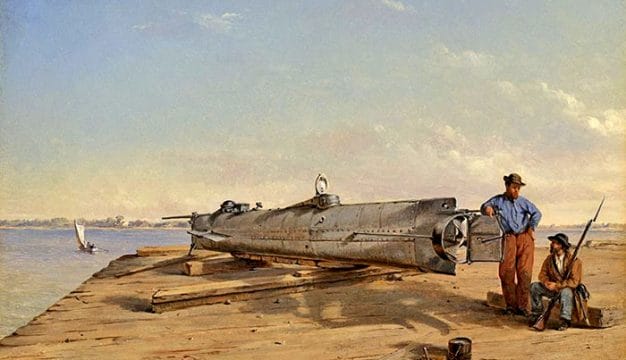Percy Sledge
 Percy Sledge
Singer Percy Sledge (1940-2015) was one of the most identifiable voices in the genre of country-soul, which emerged from the multicultural working-class environment of Muscle Shoals in the mid-1960s. Recognized for his keening, forlorn vocal quality and fluid phrasing, Sledge’s voice bears a stylistic kinship with “high-lonesome” country singers. He would join the pantheon of legendary black southern soul singers that exemplify the Muscle Shoals sound, including Otis Redding, James Brown, Clarence Carter, and Wilson Pickett. His first recording, “When a Man Loves a Woman,” became a best-selling hit in 1966 and remains his most notable recorded achievement.
Percy Sledge
Singer Percy Sledge (1940-2015) was one of the most identifiable voices in the genre of country-soul, which emerged from the multicultural working-class environment of Muscle Shoals in the mid-1960s. Recognized for his keening, forlorn vocal quality and fluid phrasing, Sledge’s voice bears a stylistic kinship with “high-lonesome” country singers. He would join the pantheon of legendary black southern soul singers that exemplify the Muscle Shoals sound, including Otis Redding, James Brown, Clarence Carter, and Wilson Pickett. His first recording, “When a Man Loves a Woman,” became a best-selling hit in 1966 and remains his most notable recorded achievement.
Percy Sledge was born on November 25, 1940, to Robert Lee and Fanluceille Sledge in Leighton, Colbert County, a rural and agricultural region of the southern Tennessee Valley. He had a brother and a sister. The area was mostly worked by descendants of black sharecroppers. Sledge began singing in the local Galilee Missionary Baptist Church in Leighton and worked as an orderly at Colbert County Hospital (now the Helen Keller Hospital in Sheffield). In his youth, he enjoyed listening to the country and western artists of the Grand Ole Opry on the radio. Sledge also sang with his cousin Jimmy Hughes’s gospel group.
In the early 1960s, Sledge began singing with the Esquires Combo, a popular group that played at area fraternity parties at Florence State College (now the University of North Alabama) on weekends. In 1965, Sledge met former disc jockey Quin Ivy, who owned the Tune Town record shop and a small recording studio in Sheffield. Ivy, like many white music lovers in the area, had become enamored with R&B music and had been scouting for material when he heard Sledge sing at the Sheffield Elks Club. Like Sledge, his roots were in country music and his socioeconomic background paralleled that of Sledge, which helped to foster a close friendship between the two men. That friendship would quickly lead to Sledge’s greatest musical success.
On February 17, 1966, Sledge met with Ivy and guitarist Marlin Greene, who had arranged to produce a recording session for Sledge at Sheffield’s Norala Studios. Sledge was backed by a group of local musicians, including drummer Roger Hawkins and guitarist Jimmy Johnson, who also served as recording engineer; both were members of the Florence Alabama Musical Enterprises (FAME) Studios house band and would become founding members of the Muscle Shoals Rhythm Section. Quin Ivy and guitarist Marlin Greene produced the session. Session musicians on hand were Dewey “Spooner” Oldham (organ), Hawkins (drums), Albert “Junior” Lowe (bass), and David Hood (trombone).
The song that the group recorded was developed from music composed by Esquires members Andrew Wright and Calvin Lewis around a lyric Sledge had written centering on the line “Why did you leave me?” By the end of the session, the song that would become “When a Man Loves a Woman” was partially complete. The master tape was sent to Memphis for additional tracks from the Memphis Horns. When it came time to press the record, however, the mastering engineer accidentally used the original tape, and many listeners have commented that the horns on the original tape sound out of tune. The record was picked up by Atlantic Records and released in April 1966 with “Love Me Like You Mean It” as the B side. The song topped Billboard’s Hot 100 for two weeks and its R&B charts for four weeks and remained in the Top 100 for 16 weeks. It became the first Atlantic single to be awarded gold status by the Recording Industry Association of America on July 15, 1966.
 Percy Sledge
Sledge returned to the studio in Sheffield and, again working with Greene and Ivy, recorded a number of other successful hits for Atlantic Records. The album When a Man Loves a Woman, released in May 1966, included the title hit, “Warm and Tender Love” and the Dan Penn and Spooner Oldham classic “It Tears Me Up,” which peaked at number seven in the R&B charts. In late 1966, Sledge released the concept album Warm and Tender Soul, which included covers of Otis Redding’s smash “Try a Little Tenderness” and Elvis’s “Love Me Tender.” The follow-up album on Atlantic, The Percy Sledge Way (1967), included the Dan Penn and Lincoln “Chips” Moman song “The Dark End of the Street,” rivaling James Carr’s original, and a cover of Ray Charles’s blues hit “Drown in My Own Tears.”
Percy Sledge
Sledge returned to the studio in Sheffield and, again working with Greene and Ivy, recorded a number of other successful hits for Atlantic Records. The album When a Man Loves a Woman, released in May 1966, included the title hit, “Warm and Tender Love” and the Dan Penn and Spooner Oldham classic “It Tears Me Up,” which peaked at number seven in the R&B charts. In late 1966, Sledge released the concept album Warm and Tender Soul, which included covers of Otis Redding’s smash “Try a Little Tenderness” and Elvis’s “Love Me Tender.” The follow-up album on Atlantic, The Percy Sledge Way (1967), included the Dan Penn and Lincoln “Chips” Moman song “The Dark End of the Street,” rivaling James Carr’s original, and a cover of Ray Charles’s blues hit “Drown in My Own Tears.”
The high point of Sledge’s career came with the 1968 release of the album Take Time to Know Her, which included the Marlin Greene and Eddie Hinton classics “It’s All Wrong But It’s Alright,” “Cover Me,” Penn and Oldham’s “Out in Left Field,” and Bobby Russell’s “Sudden Stop.” Sledge lived in Muscle Shoals into the 1970s and was frequently touring as part of soul music package concerts with other Atlantic artists such as Joe Tex.
After his final Atlantic sessions in 1971, Sledge signed with Capricorn Records, recording the album I’ll Be Your Everything in 1974 at Muscle Shoals Sound Studio and David Johnson’s Broadway Sound in Sheffield. Backed by the Muscle Shoals Rhythm Section, Sledge’s new recordings incorporated the disco stylings that were developing in Memphis and Philadelphia. But songs by Shoals-area composers Pete Carr and Court Pickett (“Make It Good and Make it Last”) and Phillip Mitchell (“I Believe In You”) anchor the production in the Muscle Shoals tradition. The title song would be Percy’s last to enter the top 100, however.
Capricorn Records went defunct in 1979, and Sledge continued his career singing in Europe and South Africa, where, under the racist system of apartheid, his appeal to both black and white audiences confounded patterns of segregation there. Sledge performed on Saturday Night Live in 1987, and that same year, Levi’s Jeans began airing a commercial backed by “When a Man Loves a Woman.” These two events brought about a resurgence of interest in Sledge’s work, and his iconic hit reached Britain’s top 10. “When a Man Loves a Woman” anchored Oliver Stone’s film Platoon, and it resurfaced again in 1991 when Michael Bolton reached the Billboard Hot 100 with his cover.
 Percy Sledge at Alabama Music Hall of Fame
Sledge won the Rhythm and Blues Foundation Pioneer Achievement Award in 1989. In 1993, the Alabama Music Hall of Fame presented Sledge with its Lifework Award for Performing Achievement. The following year saw Sledge embroiled in tax troubles with the Internal Revenue Service. He recorded a comeback album in Los Angeles, Blue Night, in 1994 on the French label Sky Ranch Records, featuring guitarists Bobby Womack and Mick Taylor. Sledge planned to tour Europe in support of the album but was prevented by tax evasion charges. Sledge was inducted into the Rock & Roll Hall of Fame in 2005 and was inducted into the Louisiana Music Hall of Fame in 2007. Sledge married twice and had 12 children. He died in Baton Rouge, Louisiana, on April 14, 2015.
Percy Sledge at Alabama Music Hall of Fame
Sledge won the Rhythm and Blues Foundation Pioneer Achievement Award in 1989. In 1993, the Alabama Music Hall of Fame presented Sledge with its Lifework Award for Performing Achievement. The following year saw Sledge embroiled in tax troubles with the Internal Revenue Service. He recorded a comeback album in Los Angeles, Blue Night, in 1994 on the French label Sky Ranch Records, featuring guitarists Bobby Womack and Mick Taylor. Sledge planned to tour Europe in support of the album but was prevented by tax evasion charges. Sledge was inducted into the Rock & Roll Hall of Fame in 2005 and was inducted into the Louisiana Music Hall of Fame in 2007. Sledge married twice and had 12 children. He died in Baton Rouge, Louisiana, on April 14, 2015.
Additional Resources
Marsh, Dave. The Heart of Rock & Soul: The 1001 Greatest Singles Ever Made. New York: Da Capo Press, 1999.
Coombsatlanta, Orde. “Should a Black Singer Sing in South Africa? Sledge in South Africa.” New York Times, June 27, 1971, p. D19.



